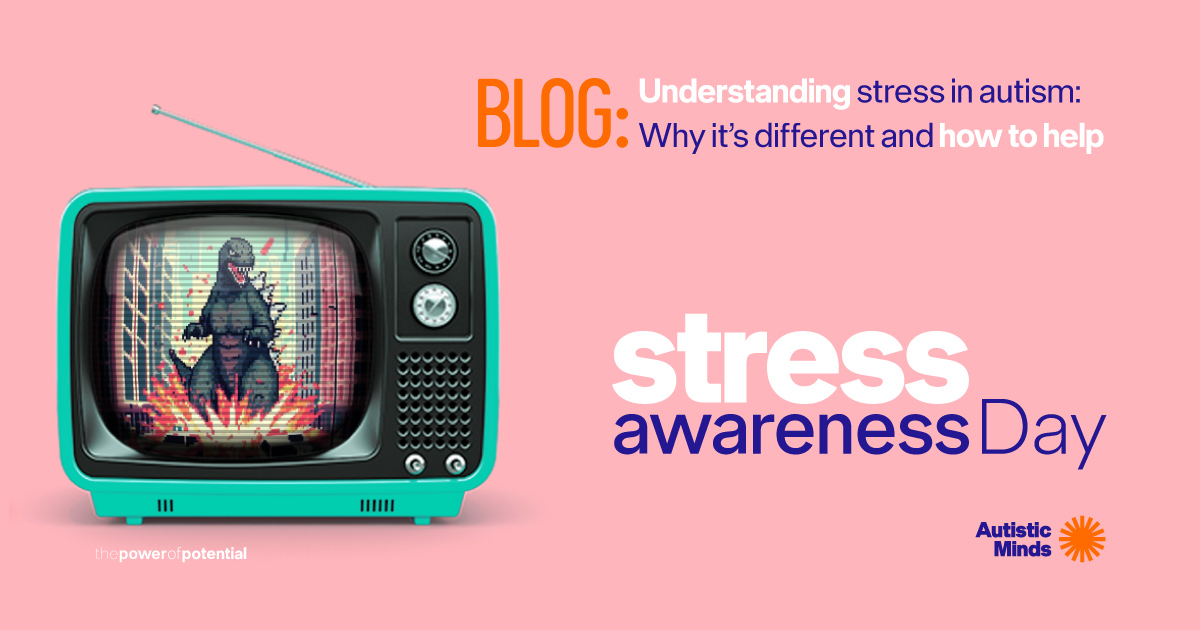Understanding Stress in Autism: Why It’s Different and How to Help

Stress impacts everyone, but for autistic individuals, it often feels especially intense. While typical stressors like work, relationships, and unexpected changes affect everyone, autistic individuals experience stress uniquely due to sensory sensitivities, communication challenges, and a strong need for routine. Here’s how stress differs for autistic people and ways to offer support, particularly on National Stress Awareness Day.
Why Stress Feels Different for Autistic People
Stress in autism frequently arises from distinct experiences in sensory processing, social interactions, and changes in routine. Here are three major factors:
- Sensory Overload
Imagine entering a room where lights are blindingly bright, noises are overwhelming, and every smell is intense. This is often the daily experience for autistic individuals due to sensory sensitivities. Ordinary environments can feel overwhelming, causing sensory overload and triggering acute stress.
- Challenges in Communication
Communication itself can be a source of stress for autistic people. Many face difficulties interpreting social cues like facial expressions or tones of voice, making conversations feel confusing. This can lead to heightened stress in settings where effective communication is essential, like at work or school. - The Need for Predictability
Sudden changes can be especially distressing for autistic individuals. While many people dislike surprises, autistic people may rely on routines for a sense of control, making unexpected events or schedule changes particularly unsettling.
For example, a last-minute change in plans can lead to significant anxiety. Where others might feel mild annoyance, autistic people can experience intense stress, often leading to a state of overwhelm.
The Effects of Chronic Stress
Consistent stress of this nature can lead to a condition called autistic burnout, marked by exhaustion, mentally, emotionally, and physically. Burnout can make everyday tasks feel daunting, often resulting in anxiety or depression. While children may exhibit irritability or meltdowns, adults might experience extreme fatigue, focus issues, or even social withdrawal. Recognizing and addressing stress is crucial to prevent these long-term effects.
Practical Ways to Help Reduce Stress
Understanding how stress works for autistic individuals can inspire practical ways to help them manage it:
- Create Sensory-Friendly Spaces
Since sensory overload is a major stress trigger, making spaces sensory-friendly is essential. This could mean dimming lights, reducing background noise, or allowing noise-cancelling headphones in noisy environments. At work or school, providing quieter workspaces or fidget tools can alleviate stress and enhance focus. - Use Clear and Direct Communication
Clear communication helps reduce stress for autistic people. Avoid vague language, sarcasm, or reliance on body language alone. Instead, use straightforward language and supplement with written instructions, checklists, or visual aids to enhance understanding. Managers and peers can help by being clear about expectations, deadlines, and instructions, and in personal settings, taking extra care to clarify communication. - Maintain Predictable Routines
One of the best ways to reduce stress is by maintaining a routine. Consistent schedules offer a sense of stability, and providing advance notice about any changes can help ease transitions. Using tools like calendars or visual schedules can support both children and adults by offering structure and reducing anxiety about what’s coming next.
For situations requiring change, such as a schedule shift or a big event, explain what will happen in advance. These small steps can make an enormous difference in helping autistic individuals feel more in control and less anxious.
Conclusion
While stress is universal, it can feel overwhelming for autistic people due to sensory sensitivities, communication challenges, and a need for routine. By fostering sensory-friendly environments, improving communication clarity, and respecting routines, we can significantly reduce the stress that autistic people face daily.




 01443 844764
01443 844764